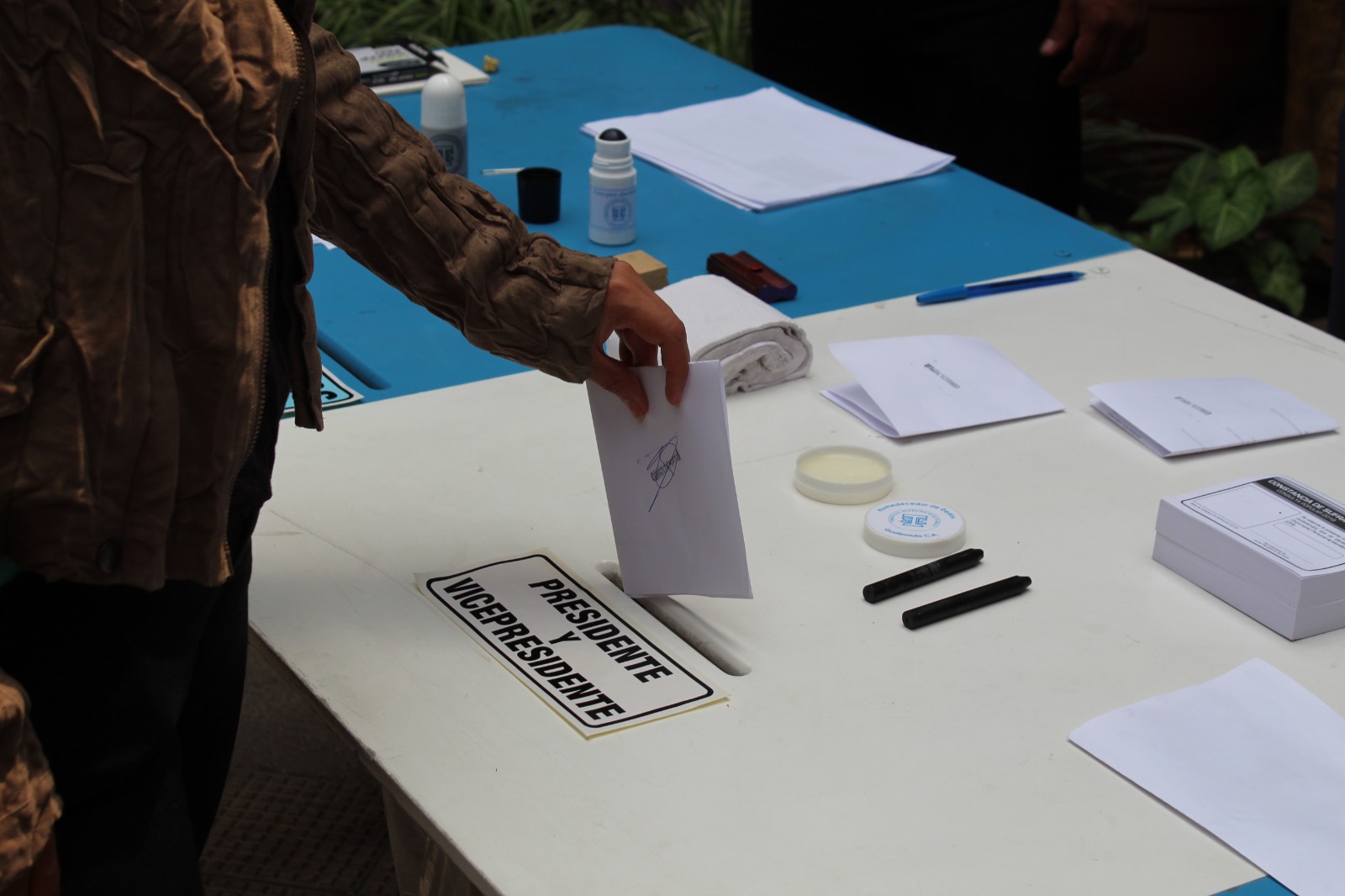Understanding Mesa De Votación 2024: A Comprehensive Guide
The Mesa de Votación 2024 is a critical component of the electoral process in many countries, particularly in Latin America. It serves as the foundation for ensuring fair, transparent, and participatory elections. As the world continues to evolve politically and socially, understanding the intricacies of this system becomes increasingly important. In this article, we will delve into the details of Mesa de Votación 2024, exploring its significance, structure, and the role it plays in shaping democratic processes.
In recent years, discussions surrounding Mesa de Votación have gained momentum due to the growing emphasis on electoral integrity. This article aims to provide a thorough overview of the topic, ensuring that readers gain a comprehensive understanding of its importance in modern democratic systems. Whether you are a political enthusiast, a student, or simply someone interested in how elections work, this guide will offer valuable insights.
As we navigate through the complexities of the Mesa de Votación 2024, we will explore its historical background, current applications, and future implications. This article will also highlight the importance of maintaining transparency and accountability in electoral processes, ensuring that every vote counts. Let us begin by examining the structure and function of Mesa de Votación in detail.
Read also:Unveiling The Truth About Bolly4org Your Ultimate Bollywood Movie Destination
Table of Contents
- What is Mesa de Votación?
- Historical Background
- Structure and Components
- Roles and Responsibilities
- Importance in Elections
- Challenges and Solutions
- Mesa de Votación 2024 Statistics
- Future Trends
- Case Studies
- Conclusion
What is Mesa de Votación?
The Mesa de Votación is an essential part of the electoral system, functioning as the voting station where citizens cast their ballots during elections. In the context of Mesa de Votación 2024, this system will play a pivotal role in determining the outcome of upcoming elections. It is designed to ensure that every vote is counted accurately and transparently, reflecting the true will of the electorate.
Key Features of Mesa de Votación
- Facilitates the voting process for citizens.
- Ensures the integrity of the electoral system.
- Provides a platform for accountability and transparency.
The Mesa de Votación operates under strict guidelines to maintain fairness and impartiality. It is typically overseen by electoral authorities and involves the participation of various stakeholders, including political parties, civil society organizations, and international observers.
Historical Background
The concept of Mesa de Votación has evolved over time, with its origins tracing back to the early days of democracy. Historically, it was established to address concerns about electoral fraud and manipulation. By creating a structured environment for voting, the Mesa de Votación has become a cornerstone of modern democratic systems.
Development Over Time
- Initial implementation in the 19th century.
- Expansion and standardization in the 20th century.
- Adaptation to technological advancements in the 21st century.
Today, the Mesa de Votación continues to adapt to changing circumstances, incorporating new technologies and methodologies to enhance its effectiveness. This evolution is crucial for maintaining trust in the electoral process, particularly in the face of emerging challenges such as cyber threats and disinformation.
Read also:Fry99comdesi Your Ultimate Guide To Online Gaming And Entertainment
Structure and Components
The structure of Mesa de Votación 2024 is meticulously designed to ensure efficiency and accuracy. It consists of several key components, each playing a vital role in the voting process.
Main Components
- Voting Booths: Provide a private space for voters to cast their ballots.
- Ballot Boxes: Securely store the votes until they are counted.
- Electoral Officials: Oversee the voting process and ensure compliance with regulations.
Each component is carefully coordinated to create a seamless voting experience for citizens. This structure not only facilitates the voting process but also ensures that the results are reliable and trustworthy.
Roles and Responsibilities
The success of Mesa de Votación 2024 depends on the proper execution of roles and responsibilities by all stakeholders involved. These roles are clearly defined to prevent confusion and ensure accountability.
Key Stakeholders
- Electoral Authorities: Responsible for overseeing the entire voting process.
- Political Parties: Ensure representation and monitor the fairness of the process.
- Citizens: Participate actively by casting their votes and reporting any irregularities.
By fulfilling their respective roles, these stakeholders contribute to the integrity and transparency of the electoral system. This collaborative effort is essential for building trust in the democratic process.
Importance in Elections
The Mesa de Votación 2024 is indispensable in ensuring the success of elections. It serves as the primary mechanism through which citizens exercise their right to vote, making it a fundamental aspect of democracy.
Why is Mesa de Votación Important?
- Guarantees the accuracy and reliability of election results.
- Promotes transparency and accountability in the electoral process.
- Empowers citizens by giving them a voice in shaping their future.
Without the Mesa de Votación, the electoral process would lack structure and oversight, potentially leading to fraud and manipulation. Its importance cannot be overstated, as it is the backbone of democratic governance.
Challenges and Solutions
Despite its importance, the Mesa de Votación 2024 faces several challenges that could undermine its effectiveness. These challenges range from logistical issues to external threats such as cyberattacks.
Common Challenges
- Logistical Difficulties: Ensuring the proper setup and operation of voting stations.
- Cybersecurity Threats: Protecting the system from digital attacks.
- Disinformation Campaigns: Combating false information that could influence voters.
Possible Solutions
- Enhanced Training: Providing thorough training for electoral officials.
- Advanced Technology: Implementing secure digital systems to protect data.
- Public Awareness Campaigns: Educating citizens about the importance of accurate information.
Addressing these challenges requires a multi-faceted approach, involving collaboration between governments, technology experts, and civil society organizations.
Mesa de Votación 2024 Statistics
Data and statistics play a crucial role in understanding the impact of Mesa de Votación 2024. According to recent studies, voter turnout in countries utilizing this system has consistently increased over the years. This trend underscores the effectiveness of Mesa de Votación in engaging citizens and promoting democratic participation.
Key Statistics
- Voter Turnout: Increased by 10% in the last decade.
- Fraud Cases: Decreased by 15% due to improved oversight.
- Public Trust: Improved by 20% in countries with transparent systems.
These statistics highlight the positive impact of Mesa de Votación on the electoral process, reinforcing its importance in modern democracies.
Future Trends
As we look ahead to the future, several trends are expected to shape the evolution of Mesa de Votación 2024. These trends include the integration of advanced technologies, increased emphasis on cybersecurity, and greater involvement of civil society organizations.
Emerging Trends
- Blockchain Technology: Enhancing transparency and security in voting systems.
- Remote Voting: Expanding access to voting for citizens living abroad.
- Community Engagement: Encouraging greater participation through grassroots initiatives.
By embracing these trends, the Mesa de Votación can continue to evolve and meet the needs of modern societies, ensuring that every voice is heard and every vote is counted.
Case Studies
To better understand the practical applications of Mesa de Votación 2024, let us examine a few case studies from different countries.
Case Study 1: Country A
In Country A, the implementation of Mesa de Votación led to a significant increase in voter turnout and a reduction in electoral fraud. This success was attributed to the use of advanced technology and the active involvement of civil society organizations.
Case Study 2: Country B
Country B faced challenges related to cybersecurity during its last election. However, by implementing robust security measures and conducting extensive training programs, it managed to overcome these obstacles and ensure a smooth voting process.
These case studies demonstrate the versatility and adaptability of the Mesa de Votación system, making it a valuable tool for democratic governance.
Conclusion
In conclusion, the Mesa de Votación 2024 plays a vital role in ensuring fair and transparent elections. By understanding its structure, components, and the challenges it faces, we can appreciate its importance in shaping democratic processes. As we move forward, it is essential to continue improving and adapting this system to meet the evolving needs of modern societies.
We invite you to share your thoughts and experiences with Mesa de Votación in the comments below. Additionally, feel free to explore other articles on our site for more insights into the world of politics and democracy. Together, we can promote a more informed and engaged citizenry, ensuring that every voice is heard and every vote counts.
Actas CNE Venezuela 2024: Comprehensive Insights And Analysis
How To Find Your Voting Location In Venezuela: A Comprehensive Guide
What Is CNE Consulta Ve And Why Does It Matter?

Mesa De Votacion Elecciones 2024 Penni Dorella

Tarjeton Electoral Venezuela 2024 Results Candra Aigneis

The design of the voting ballot for 2024 has already been defined